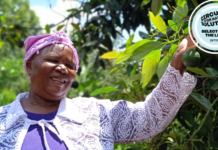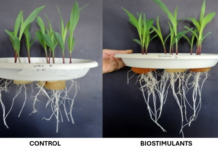By Luambo Maligana Munzhedzi, CEO, Zwavhulimi Soil Fertilizer Company and Chairperson, Agro Dealers Association of South Africa (ADASA)
Who is an Agro dealer?
“an agro dealer is an entrepreneur who sells, supply Agriculture inputs such as seed, fertilizer, stock remedies, agrochemicals, animal feed and other services needed closer to farmers”
Much has been achieved addressing agro dealers as catalyst for agriculture growth in Africa by governments in partnership with private sector and not-for-profit organizations such as AFAP,AGRA, ARGMARK-KENYA,AGRIFOP-Rwanda , IFDC and USAID. However, the involvement of the agro dealer in development discussions in Southern Africa, Eastern Africa and West Africa has been a challenge as most of NGOs often decides and plan for Agro dealers not partner with Agro dealer associations especially to draft policies ,development of Agro dealers ,Inputs Market -trends and issues affecting regulations.
Most Agro dealers are in rural areas and mid-towns predominantly sell informally from small (30 square metres) make-shift stalls to larger warehouses (200 square metres). These are mainly operated by middle-aged men (60%) and women (40%). The youth in this sector yet to enter into agribusiness model of agro dealers and in South Africa graduates from Agriculture colleges and TVET Agriculture focused is being prioritized. In many countries, the opportunity for agro dealers has been gradually improving in terms of product knowledge trainings and customer relations. However, in most African countries such as Burkina Faso, which has more than 1000 agro dealers accessing credit guarantees has been a challenges ,South Africa Model where inputs are still clouted by Competition challenges ,collusion and dishonest pricing models this has been a difficult space to operate in.
Improving relationships
Political influences in most African countries has affected the development of agro dealers. They became involved in procurement systems, input voucher systems, as well as subsidy programmes in countries which ultimately resulted in lower quality inputs, delays and logistics nightmares. The market stall vendors were repackaging illegally and this became a concern to farmers. They did not know what they were buying and were thinking; ‘what is in the bag and will it add value and improve the yield to my crops?’ In South Africa agro dealers have been operating for many years but of recent partnership between Limpopo department of agriculture and Agro dealer Association of Southern Africa has seen positive lights and sign of progress on public private partnership. Entrepreneurs are trained locally by the Agro Dealers Association of Southern Africa (ADASA) and these trainings often taken by entrepreneurs in Agriculture value-chain.
We still believe that the concept ‘from agro dealers to farm gate’ will bring fruitful results if the associations in each country are made part of the development.
Challenges
Despite there being over 10 000 agro dealers in Africa, the consumption of fertilizers per hectare has not seemed to improve much. Fertilizer demand is also impacting on the agronomy of most countries with fertilizer blending plants coming into operation all over the Africa.The situation has become more about quantities and less about improvement of the quality of food securityThe main problem is that agro dealers are not informed about the inputs they handle. Nevertheless, the system plays their role in each country’s revenue structure. It creates jobs in sustainable agribusinesses, which have the potential for uplifting rural economies.
Financial start-up support remains a concern from most agro dealers. The agro dealers associations in Burkina Faso, South Africa, Zambia, Malawi, DRC, Kenya and Rwanda, all agree that there is a need for tailor made financial assistance to be made available to agro dealers. The current programme that supports agro dealers has to go through NGOs first and this timely procedure often results in inputs such as seed arriving in the agro dealers hands too late for the sowing season. Due to systematic approach used to develop Agro dealers the most worrying finding is that for every $100 meant for funding not only $70 will go to inputs but remaining $20 is lost in logistic challenges and only $10 will go to farmer. Although Agro dealers are part of the Inputs industry suppliers and may be slightly higher than Producers it remains a fact that Agro dealers sell not only product by also sells technical know -how ,closer to farm gates and plays very prominent role in useful data collection. Governments should invest heavily on Agro dealers as the developing partners
Farmer support and balance fertilizer distribution
Although an agro dealer basically sells different inputs such as seed, agriculture remedies, animal feed, fertilizers and other farm accessories it remains crucial that agro dealers must not be associated with poor service, low quality products or non-compliance.
It is also important to have highly trained agro dealers being properly regulated within their respective countries. In most common cases agro dealers are still not informed of the latest technology or trends that may help farmers produce more in a given space and lower waste. Inputs such as slow release nitrogen, mineral chelates, soil analysis would improve both yields and food security. It is also important for the agro dealers to implement new strategies with farmers associations as part of the development. Agro
Way forward
Agro dealer Farmer support
As challenges to farmers kept rising from distance to and from buying inputs ,buying wrong inputs, sold by wrong personnel, sold wrong quantities and sold in wrong packaging with no clear directive messages it is therefore important to have an Agro dealer in the radius of 10-20km who is well trained and adds value to the farmers and food security. with unemployed graduates from Agricultural colleges in Africa absorbed in this Business Model more direct jobs can be created, governments across Africa may save interms of logistics and tender opportunities that comes with seasonal challenges. In South Africa since 2012 we have seen Agro dealer enterprises creating an average of 2-5 Full time employees from over 200 Agro dealers in Limpopo province alone more than 550 Jobs were created









